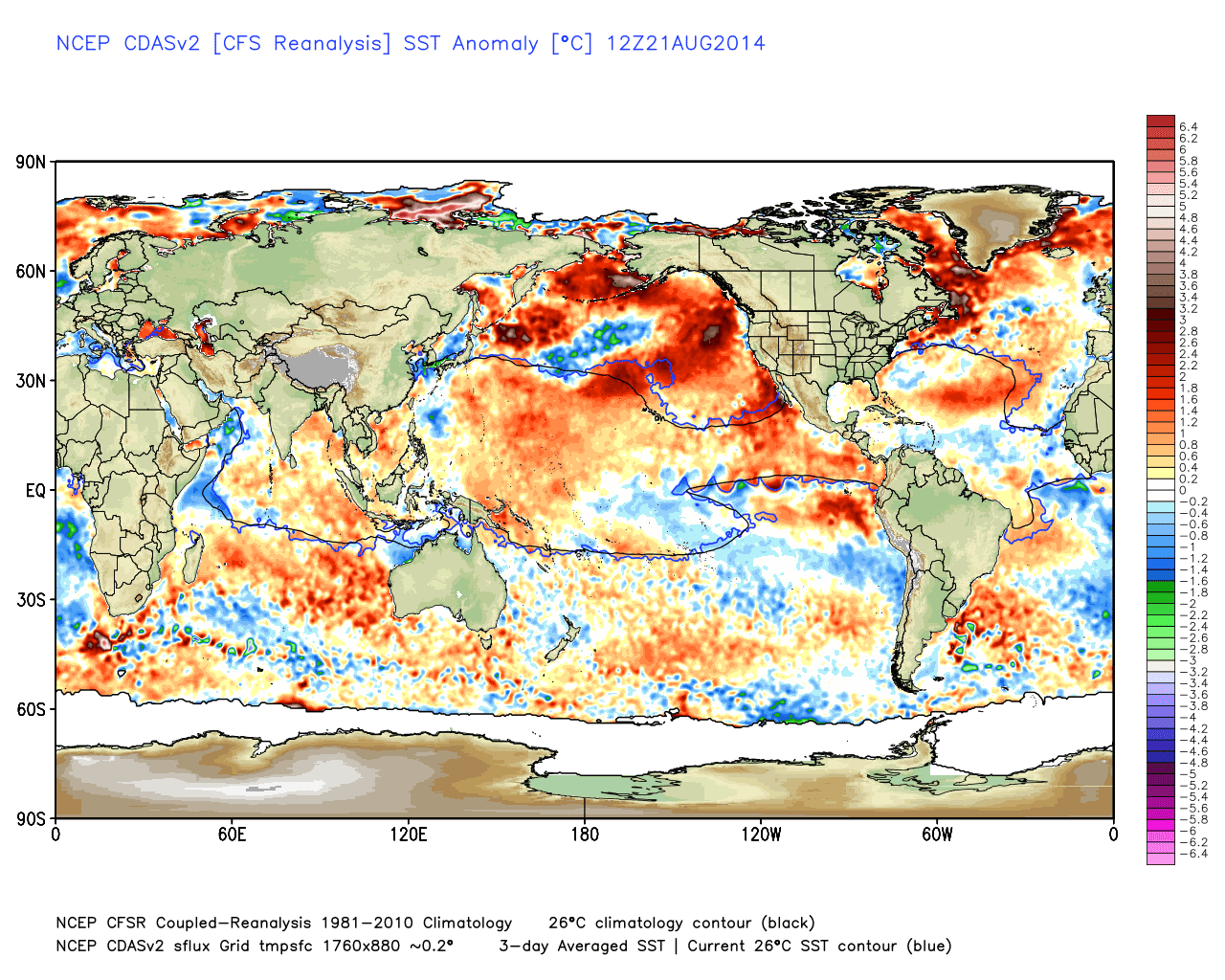Weather nuts like me always look forward to when a monthly climate model comes out with its updated forecast on winter. In fact there are many climate models to look at including our own in the USA called the CFSv2 but for today I want to break down a recently very popular model from an agency in Japan called JAMSTEC. This is the talk of the weather community today. Its had its moments of fame over the past few years, but like most long term models is far from perfect and if anything makes see-saw like swings in its monthly output.
In any event here is what its updated September forecast has for temps this winter...
As you can see has a colder than normal look for the USA.
Last month it looked like this..
AS you can see a colder look for our area. However this output means nothing to me, I am more focused on the temperature patterns of the oceans and what the model is predicting for them. The oceans have alot to do with the upper air (jet stream) pattern over the country and ultimately I believe will tell the tale for this winter.
I broke down its Sea Surface Temperature Anomaly output for this month..
Few things to notice, the warmer than normal water in the NE Pacific, the warmer than normal water off the coast of South America (El Nino) and the warm, cold, then warm water over the Atlantic.
Warmer than normal water in the NE Pacific promotes a downstream Ridge of high pressure or rise in the jet stream as seen above, which results in a trough or colder than normal conditions over our area. The west based El Nino favors a active sub tropical jet which will bring alot of moisture into the country that can potentially merge with the northern jet (drawn in black above). And finally the Atlantic Tri-Pole promotes high pressure over Greenland which also supports a dip or trough in the jet stream over our area.
Bottom line the Sea Temp projections favors this set up and it is one of the most important factors I will be watching before I release my winter forecast sometime between Oct 15th-25th. At that time I will break down all the factors I am looking at, many of which I am still following the trends on closely.
Now here is an example of why you can't always just trust a temp run of any model..here where the temp projections from Oct of last year for this past winter on this model..
We all know that was not the final result. The point is its important to study factors that drive the overall upper air pattern which ultimately derives the temp patterns. If any of these factors unexpectedly change over the next two months it will drastically change the winter outlook. I can easily release one now but I want to be more patient to hopefully increase the accuracy.
Thanks for checking in.
















